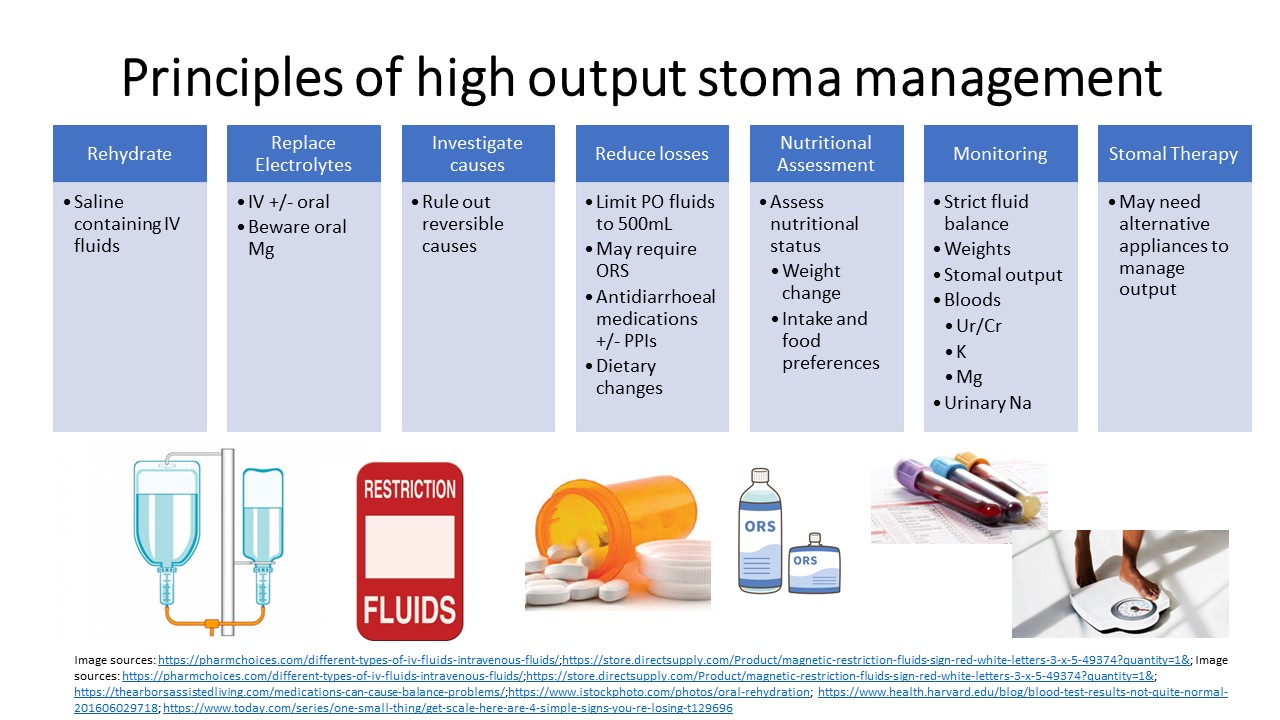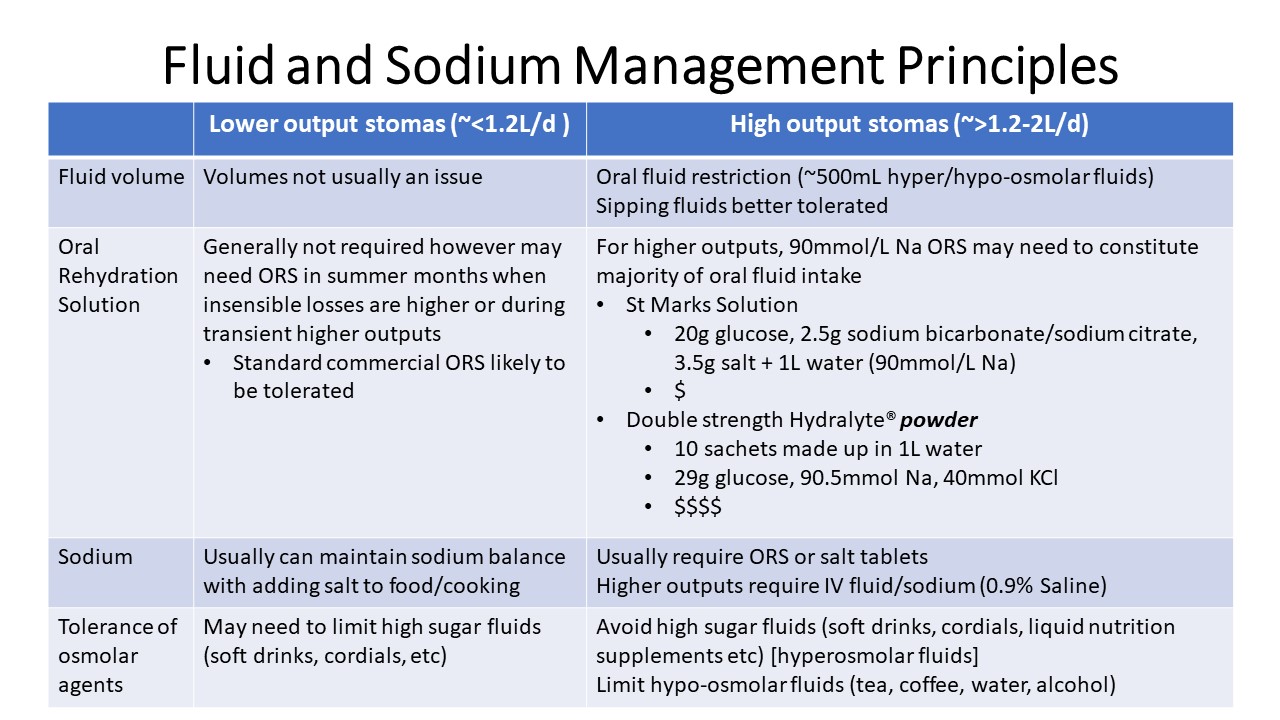High output stomas by Emma Osland, AdvAPD
 Anthea Talliopoulos, APD
Anthea Talliopoulos, APD
Understanding and educating individuals on the nutritional management of their stoma output can be complex, with many patients receiving contradictory advice from their friends, family and even other healthcare professionals. Common misinformation provided includes that drinking more fluids will compensate for stoma losses and that soluble fibre (such as psyllium) will thicken output. In reality and based off existing evidence, it is best to limit excessive fluid intake as this will help to reduce the volume of output, as well as avoid soluble fibre supplements as these may thicken output but do nothing for the volume of fluid lost.
With output of greater than 1.5-2 litres in 24 hours over 3 days, high output stoma can cause dehydration, electrolyte disturbances, renal impairment, malnutrition and micronutrient deficiencies. High stoma output can also commonly result in social withdrawal, mental health implications and poorer quality of life, although if appropriate dietary changes are made, this can improve.
In this informative presentation, Advanced Accredited Practising Dietitian Emma Osland provides practical insights and tips into the management of high output stoma. With the use of clinical scenarios, she explains that in managing high output stoma, it is critical that losses are replaced intravenously and gradually to prevent oedema, as well as delivering intravenous electrolytes (particularly sodium and potassium) and minerals (selenium, magnesium and zinc). Separating foods from fluids, limiting excessive non-electrolyte fluid intake (even if thirst is excessive), choosing drier food options, avoiding gut irritants and high osmotic fluids, limiting oral magnesium supplements, and focusing on oral rehydration solutions (when required) may help to reduce stoma output. However, in the case of an established stoma, if there are significant changes in output, it is critical that this is medically investigated.
Overall, it is important that medications and fluids are optimised, supportive dietary choices are provided and that appropriate dietary education is delivered in reducing excessive stoma output and improving patient outcomes.
Summary:
- High output stomas increase the risk of malnutrition, dehydration, renal impairment, kidney stones, and social withdrawal/ mental health implications.
- Drinking less with high output stoma, although paradoxical, should be encouraged to reduce further excessive output.
- Soluble fibre (such as psyllium) is useless. It may thicken the output but does nothing for the volume of fluid lost.
- Appropriate tailored dietary education on limiting fluid intake at meals, eliminating dietary triggers, removing unnecessary supplements, and replacing electrolyte losses should be delivered to prevent the complications and mental health implications of high stoma output.
Emma Osland is an Advanced Accredited Practising Dietitian currently based at the Royal Brisbane and Women’s Hospital. In her career to date, Emma has worked across a broad range of practice areas and is recognised for her expertise in nutrition support and surgical nutrition. Her particular clinical interests include micronutrients, parenteral nutrition, intestinal failure, and she loves seeing how nutrition can positively impact her patients’ quality of life.
To register for the presentation and associated documents including the assessment quiz click here

